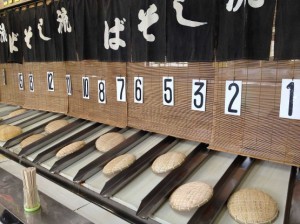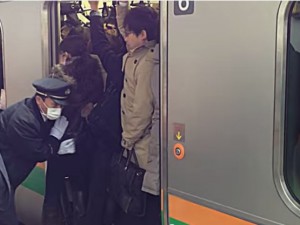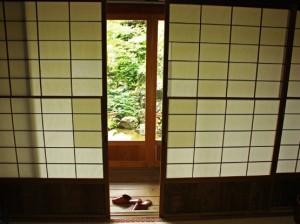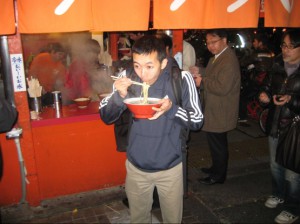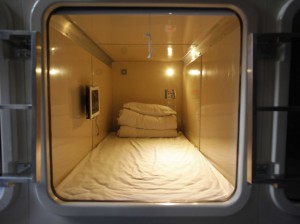11 Japanese customs that are shocking to foreign travellers
Japan has a unique culture that has a very strict code of etiquette.
There are specific ways to eat noodles, good practices for accepting gifts, and certain rules to follow so that you avoid insulting a host.
This complex web of social rules and traditions can be overwhelming for those travelling to Japan, so we’ve compiled a list of some of the things that foreigners find most shocking when visiting the country.
Here are 11 customs you should know before travelling to Japan.
1. The number four is avoided at all cost.
In Japan, the number four is avoided because it sounds very similar to the word for death. In the same vein as the number 13 in Western culture, the number four is extremely unlucky and is used as little as possible. You must always avoid giving anyone something in fours since it can be seen as a very ominous gift.
Elevators will often be missing a fourth floor — and in some extreme cases, they will not have the floors 40-49. The number 49 is especially unlucky, as it sounds similar to the phrase which means “pain until death.”
The practice of avoiding the number four is called “Tetraphobia,” and is common in many East Asian and Southeast Asian regions.
2. Blowing your nose in public is considered rude.
Blowing your nose in public is not only seen as rude, but simply disgusting. Instead, people will generally sniffle until they find somewhere private. If you simply must blow your nose, it is recommended that you do so as discreetly as possible.
The Japanese are also repelled by the idea of a handkerchief.
3. Tipping can be seen as insulting.
Tipping is considered rude — and can even be seen as an degrading. Tipping will often cause confusion, and many people will chase after you to give you back your money.
If someone has been particularly helpful and you feel absolutely compelled to leave a tip, Rough Guides suggests leaving a small present instead.
4. Walking and eating is seen as sloppy.
Although walking and eating is often convenient and widely accepted in many Western cultures, the practice is looked down upon in Japan. Many also consider it rude to eat in public or on the trains.
There are just a few exceptions to this rule, including the fact that it is ok to eat an ice-cream cone on the street.
5. There are designated people who will push youinto a crowded subway car.
Oshiya, or “pushers,” wear uniforms, white gloves, and hats and literally push people into crowded subway cars during rush hour.
They are paid to make sure everybody gets in and doesn’t get caught in the doors.
6. People will sleep on the trains with their head on your shoulder.
If someone falls asleep with their head on you shoulder in Japan, it is common practice to just tolerate it. People have very long commutes and work dreadfully long hours, so many will often fall asleep on the train.
“There is a tolerance that if the person next to you falls asleep and their head kind of lands on your shoulder, people just put up with it. That happens a lot,” Sandra Barron told CNN.
7. There are toilet slippers for the bathrooms.
It is customary to change into slippers when entering a Japanese home, a traditional restaurant, temples, and sometimes museums and art galleries, according to Rough Guides. Basically anytime you come across of row of slippers in Japan, you should just put them on.
There are even special toilet slippers kept inside the bathroom, so you’ll take off your house slippers and put on the toilet slippers.
8. You must always bring a host a gift.
It is an honour to be invited to someone’s home in Japan, and if this happens you must always bring a gift. The gift should also be wrapped in the most elaborate way possible, and lots of fancy ribbons are suggested.
You should also never refuse a gift once offered — but it is good practice to strongly protest the gift at first.
9. Pouring you own glass is considered rude.
It is customary in the US (and many other countries in the world) to serve others before you serve yourself, but in Japan you are never supposed to pour yourself a drink. If you have poured for others, another guest will hopefully see that your drink is empty, and pour for you.
You must also always wait for someone to say “Kanpai” (cheers) before drinking.
10. Slurping noodles is not only seen as polite — but also means that you have enjoyed your meal.
Slurping is considered polite in Japan because it shows that you are enjoying your delicious noodles — in fact, if you don’t eat loudly enough it can be mistaken as you not enjoying your food.
Slurping noodles isn’t entirely for the sake of politeness, but also to avoid having a burnt tongue. Japanese soup and noodles are generally served steaming hot, hot enough to burn, and slurping helps to cool down the food.
But unlike some other Asian nations, it is still considered rude to belch at the table.
11. Sleeping in capsule hotels that aren’t much bigger than a coffin is very common
.
Capsule hotels are used as cheap accommodations for guest who purely want a place to sleep — and are most often used by businessmen working or those who have partied too late and have missed the last train home.
The sleeping quarters are small capsules that are not much bigger than a coffin, and the beds are stacked side-by-side and on top of one another. The concept has been around in Japan since the 1970s, but has begun to spread to a few other countries around the world.
The hotels are a cheap alternative to a hotel, since a bed costs only $US65 a night, but should be avoided for anyone who suffers from even slight claustrophobia.
the material is taken from http://www.businessinsider.com.au/japanese-customs-that-are-shocking-to-foreign-travelers-2015-2


